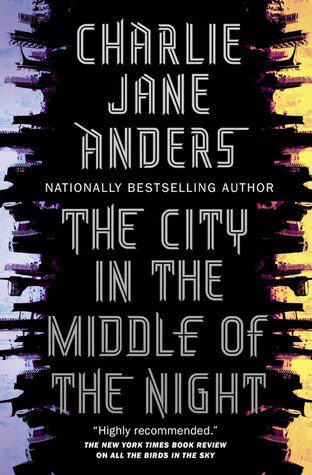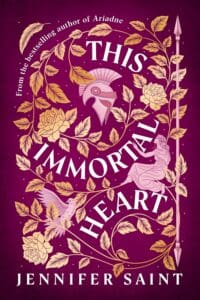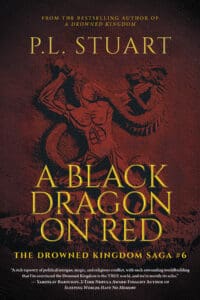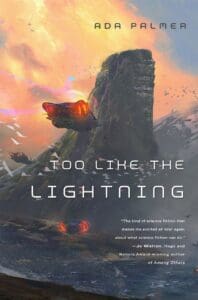Rating: 6.5/10
Synopsis
Would you give up everything to change the world?
Humanity clings to life on January–a colonized planet divided between permanently frozen darkness on one side, and blazing endless sunshine on the other.
Two cities, built long ago in the meager temperate zone, serve as the last bastions of civilization–but life inside them is just as dangerous as the uninhabitable wastelands outside.
Sophie, a young student from the wrong side of Xiosphant city, is exiled into the dark after being part of a failed revolution. But she survives–with the help of a mysterious savior from beneath the ice.
Burdened with a dangerous, painful secret, Sophie and her ragtag group of exiles face the ultimate challenge–and they are running out of time.
Review
Author Charlie Jane Anders took some big risks with The City in the Middle of the Night. To start, the setting is really interesting with half of the planet hot and bright and the other half dark and freezing. This not only creates the surface-area effects on a story, it permeates everything – making for interesting scenarios. For instance, someone who grew up on the hot side of the planet would have trouble adapting to the cold side of the planet. But there is more to it than just being cold. The difference in brightness affects sight. The fauna and flora are contrasting, as well, and behave in varying ways. Transportation, agriculture, civilization – everything changes from one side to the other. I really like how Anders gets deep into the weeds and gives a lot description – especially in the beginning of the book. It really helps the reader to understand what is going on in a story which would be otherwise confusing. For a book that is driven by the setting, I found the descriptions to be really important.
As for the story itself, it starts off quite intriguing. The two protagonists (Sophie and Bianca) are best friends who get separated by circumstances stemming from political strife. Their affection for one another leads to them each working to get back to the other, while at the same time fighting against the powers that be. Early on, this showcases a set of dual storylines, both filled with tension, working toward resolution. This setup kept my interest for the first half of the book.
The second half, however, did not hold my attention so much. Both protagonists make big decisions that I did find believable for their characters. Many of the events in the latter part of the story seem quite random. Then, there is a very big, very long info dump. It seems to me that the author meant for this to be a kind of watershed moment; as if the events in the story had all led up to this moment of clarity. As a reader, I did not feel that way. While I had been wondering about a few items relating to the history of the planet and human colonization of it, the payoff felt like overkill. After that, everything kind of peters out as the story limps to the end.
Overall, this was a decent read. I found the first half of the book to be much more interesting than the second half, as the tension in the beginning of the story created high expectations. I like that Anders was not afraid to take risks in this book, even if they did not all pay off. I recommend this book for anyone looking for an out-of-the-box fantasy read.





Could be a case of, I didn’t know how to finish the book syndrome. Which plagues a lot of writers. What a shame, I hear she’s usually a go to author. Not that I’ve read any of her work. Yet!
This is my first of hers. It did feel rushed at the end. I encourage everyone to read it and form their own opinions, though. Maybe this cascade of information appeals to you.
It might be that others read it differently, and, as you say, don’t mind that kind of info dump at the end. It’s all personal taste.